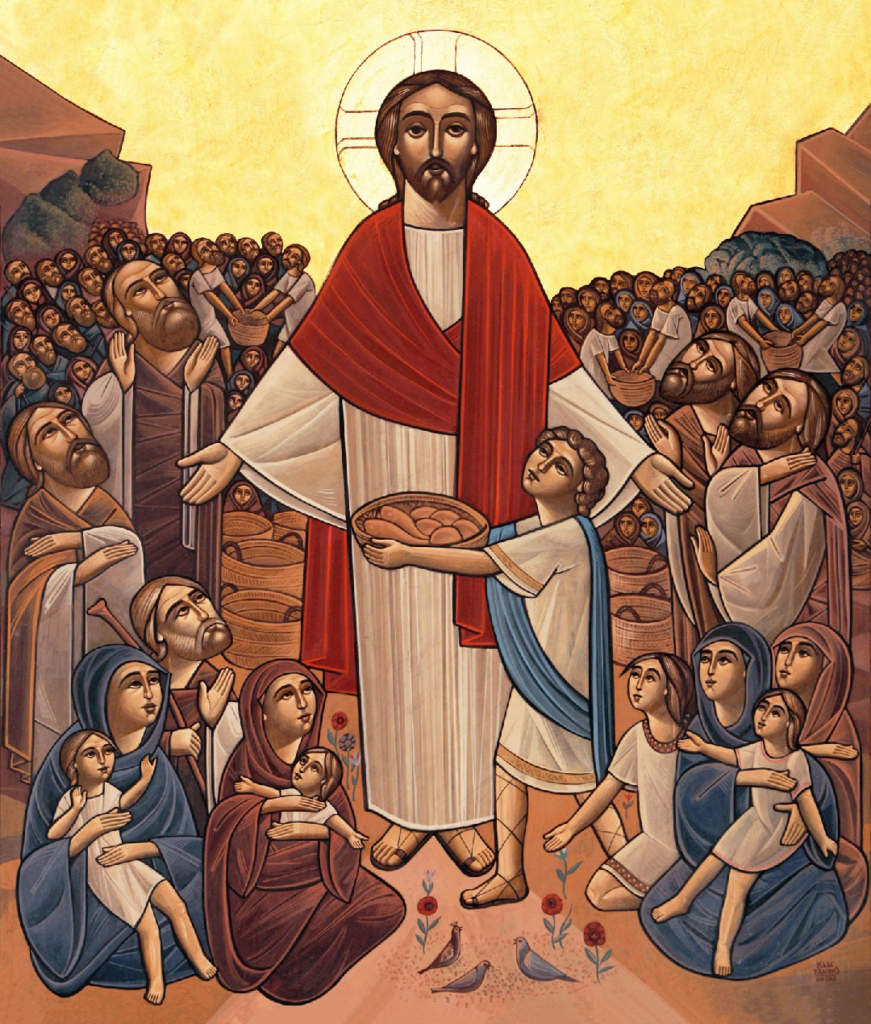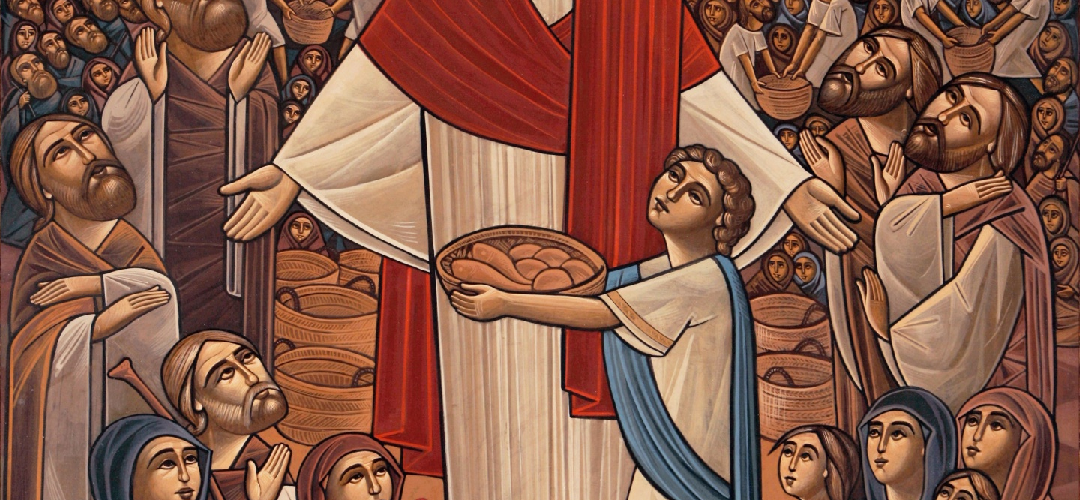The Dangers of Understanding
Scripture Readings

What’s the difference between knowledge and understanding? Knowledge is the acquisition of facts. Data. For example, we know that the moon orbits the earth. We know that matter warps space. We know that the oceans rise and fall. All these things we know are facts. It’s only when we put this knowledge together and seek out the relationships—the connections—among them that we begin to understand. We understand that the warping of space by the the moon causes the distortion in the earth that we call tides. Understanding involves more than just facts. It requires us to make connections, to intuit relationships, to discern cause and effect. Knowledge on its own is useless unless it is raised to the level of understanding.
There are two other characteristics that distinguish understanding from mere knowledge. The first is that, when you accumulate more knowledge, it increases in quantity. You know more about more subjects. When you gain in understanding, it grows in quality. Your understanding grows deeper and broader. The second characteristic that distinguishes these two is that knowledge is necessary, whereas understanding is optional. As long as you’re alive, you’ll continue amassing knowledge. The data just keep coming. Understanding, on the other hand, takes work. It requires attention, discernment, and critical thinking. It also requires openness to the future. Without openness, understanding degenerates into mere knowledge.
This is all starting to sound very complicated and theoretical, isn’t it? Let’s see how today’s Scripture readings relate to understanding, and let’s begin with our first reading from the Book of Joshua. Joshua gave the tribes of Israel a choice between worshiping the gods of Egypt, where they came from, or the gods of the Amorites, where they had settled, or Yahweh, who brought them out of Egypt and whom Joshua pledged to worship. Of course, the people had first-hand knowledge of the wonders Yahweh had performed through Moses, so they declared, “We also will serve Yahweh, for he is our God.”
The Israelites had knowledge, alright, but did they have understanding? Did they appreciate what worshiping Yahweh as their God meant? Did they comprehend that worshiping Yahweh meant being faithful to the Law, the Torah, the stipulations of Yahweh’s covenant with his people? History suggests that they did not understand what they were getting themselves into.
How often have we committed ourselves to a course of action that we knew was good, only to understand later that it demanded more of us than we were willing to commit? What do we say then? Don’t we plead, “I didn’t understand what it required of me.”?
In the gospel reading today, the disciples knew what Jesus was talking about when he compared himself to the manna in the desert, the living bread come down from heaven. They understood how God had provided food to keep his people alive in the desert. They understood that the Messiah would someday come from heaven to save Israel. They understood that Jesus was claiming to be the bread come down from heaven to keep his people alive forever. What they failed to understand was that their own understanding was incomplete and stuck in the past. Their understanding was not open to reinterpretation and deepening. They were not ready to have it challenged and expanded beyond their comfort zone. So, they left Jesus rather than working to understand him.
How often have we fought to prove ourselves right based on our limited understanding, an understanding that refused to be confronted, broken open and transformed? How often have we needed to apologize when we finally gained a fuller understanding? The disciples who left Jesus never permitted themselves to get to that point.
Now, we come to today’s second reading. I’ve chosen the abbreviated version so as not to upset you. After all, this is the passage that contains the sentence, “Wives should be subordinate to their husbands as to the Lord.” Ouch! How dare Saint Paul write such a sexist statement! Didn’t he understand how unjust and demeaning that is? Didn’t he understand how his words would be used to subjugate and humiliate countless generations of women? How could he not understand? My question to you this morning is, who is it that’s lacking understanding? Is it he, or we? If, as I said earlier, understanding grows deeper and broader over time, how fair is it to condemn the past based on an understanding that didn’t exist at the time?
Just look at what happens when we do that to ourselves. We naturally feel guilt when we catch ourselves making a bad decision. That’s healthy. It motivates us to do better next time. However, we feel shame, remorse, and regret when we look back at that old decision with new understanding. It’s called “beating ourselves up.” It happens when we punish ourselves in the present for decisions we made in the past based on an understanding we didn’t have. How easy it is to be unfair to ourselves! We tend to be more compassionate toward others when we have an understanding of their predicaments than we are with ourselves. We justify this unfairness to ourselves by saying, “I should have known better.” Should have? But the point is, you didn’t!
I’m going to give you a saying this morning that, in time, you may find helpful. It may shock you at first, but it can free you from the shame and self-deprecation it’s so easy to fall into when you’ve made a bad decision. Before you reject it out of hand, ponder it. Seek to understand it. Gradually, you may come to appreciate its wisdom. Here it is: “The decision you made at the time that you made it was the right one for you.”
Let me reiterate the three dangers of understanding. First, there is the danger of making a decision without adequately understanding the potential consequences, like the Israelites in the first reading. It’s the danger of too little understanding. The second danger comes from applying yesterday’s understanding to today’s issues, like the disciples who left Jesus in today’s gospel. That’s the danger of a closed and static understanding. The third danger is unfairly judging yesterday’s thoughts, words, and actions by today’s understanding like condemning Paul’s words two thousand years ago from the standpoint of today’s understanding. That’s the danger of applying understanding without compassion.
In the end, understanding our faith takes work. It means working to deepen our present understanding. It means working to appreciate the understandings of the past. And it means being ready to leave behind our current understandings when we’re challenged with new ones. My prayer for you this morning will be that of Saint Paul who prayed for the power of understanding for the faithful people of Ephesus.
I ask that out of the riches of His glory [the Father] may strengthen you with power through His Spirit in your inner being, so that Christ may dwell in your hearts through faith. Then you, being rooted and grounded in love, will have power, together with all the saints, to comprehend the length and width and height and depth of the love of Christ, and to know this love that surpasses knowledge, that you may be filled with all the fullness of God.
Ephesians 3:16-19
